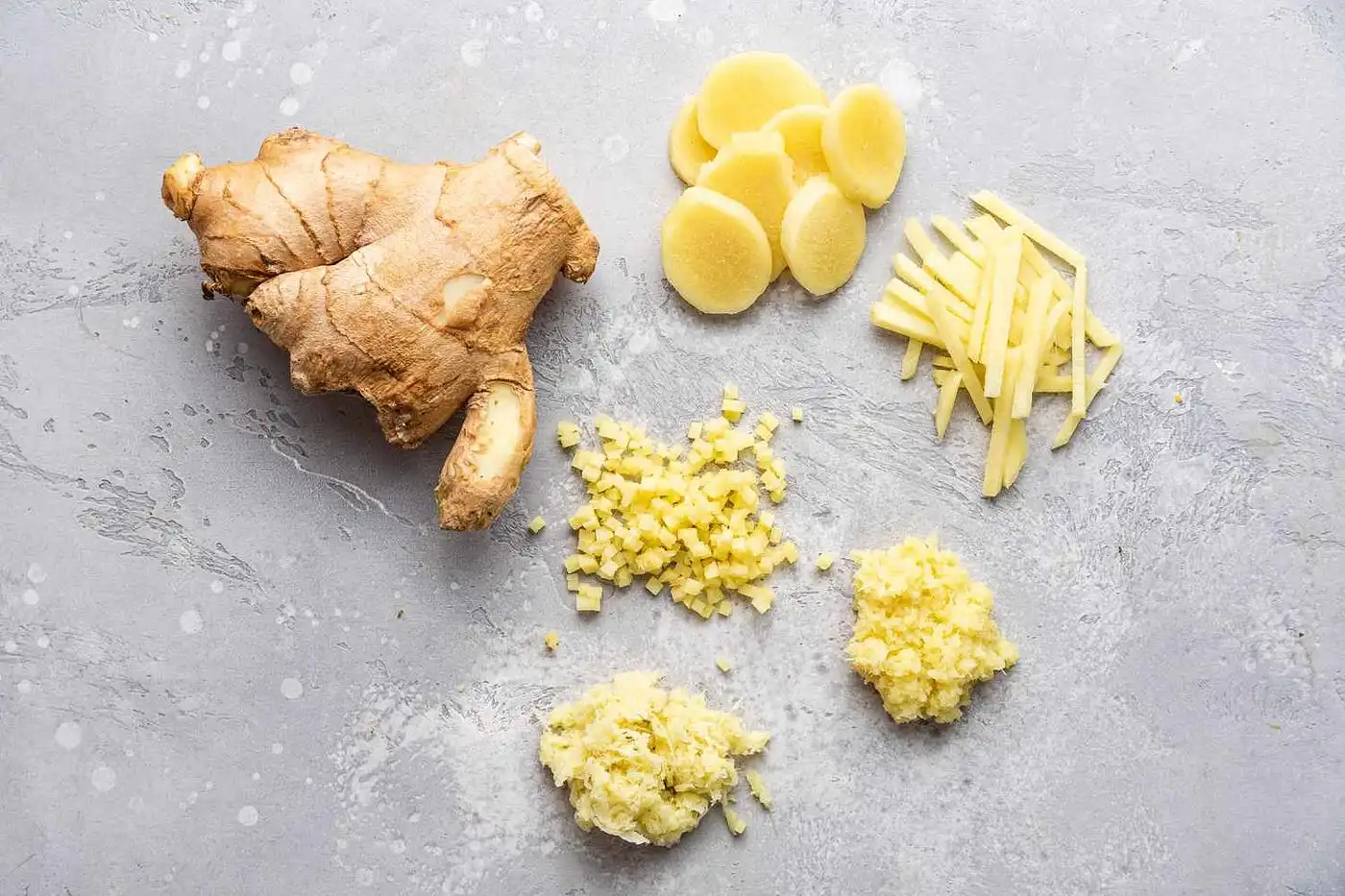How is ginger an anti-inflammatory?

Ginger, with its distinctive flavor and aroma, has been prized for centuries not only as a culinary spice but also for its potent medicinal properties. One of the most notable benefits of ginger is its ability to act as an anti-inflammatory agent, offering relief from a wide range of inflammatory conditions. In this comprehensive exploration, we delve into the mechanisms behind ginger’s anti-inflammatory effects, its potential health benefits, and practical ways to incorporate this powerful root into your daily routine.
Understanding Inflammation: The Body’s Response to Injury and Illness
Before diving into the specifics of ginger’s anti-inflammatory properties, it’s crucial to understand the concept of inflammation itself. Inflammation is the body’s natural response to injury, infection, or illness. It involves a complex cascade of cellular and molecular events designed to protect the body and facilitate healing. While acute inflammation is a necessary and beneficial process, chronic inflammation can lead to a host of health problems, including arthritis, heart disease, and autoimmune disorders.
Ginger’s Active Compounds: Unraveling the Mystery
Ginger owes its anti-inflammatory properties to a group of bioactive compounds known as gingerols, paradols, shogaols, and zingerone. These compounds are concentrated in the rhizome or root of the ginger plant and possess powerful antioxidant and anti-inflammatory effects. Among these compounds, gingerol is the most abundant and well-studied, accounting for much of ginger’s therapeutic activity.
Modulating Inflammatory Pathways: How Ginger Works its Magic
Ginger exerts its anti-inflammatory effects through multiple mechanisms, targeting various pathways involved in the inflammatory response. One of the key actions of ginger is its ability to inhibit the production of pro-inflammatory cytokines, signaling molecules that promote inflammation. By suppressing cytokine production, ginger helps dampen the inflammatory cascade and reduce tissue damage.
Moreover, ginger has been shown to inhibit the activity of cyclooxygenase (COX) enzymes, which are responsible for producing inflammatory prostaglandins. By blocking COX activity, ginger reduces the synthesis of prostaglandins, thereby alleviating pain and inflammation. This mechanism is similar to that of nonsteroidal anti-inflammatory drugs (NSAIDs) like ibuprofen, but with fewer side effects.
Additionally, ginger contains potent antioxidant compounds that help neutralize free radicals and oxidative stress, which are implicated in inflammation-related diseases. By scavenging free radicals and protecting cells from oxidative damage, ginger contributes to its overall anti-inflammatory activity.
Clinical Evidence: What the Research Says
Numerous studies have investigated the anti-inflammatory properties of ginger in both animal and human models. Research suggests that ginger supplementation can significantly reduce markers of inflammation, such as C-reactive protein (CRP), interleukin-6 (IL-6), and tumor necrosis factor-alpha (TNF-alpha). These findings support the traditional use of ginger as a natural remedy for inflammatory conditions.
Moreover, clinical trials have demonstrated the efficacy of ginger in alleviating symptoms of osteoarthritis, rheumatoid arthritis, and other inflammatory joint disorders. Patients who consumed ginger supplements experienced improvements in pain, stiffness, and physical function compared to placebo groups, highlighting the therapeutic potential of ginger in managing inflammatory joint conditions.
Practical Tips for Incorporating Ginger into Your Diet
Adding ginger to your diet is a simple and delicious way to harness its anti-inflammatory benefits. Fresh ginger root can be grated, sliced, or minced and added to a variety of dishes, including stir-fries, soups, salads, and smoothies. Alternatively, you can brew ginger tea by steeping fresh ginger slices in hot water or enjoy ginger-infused beverages like ginger ale or ginger kombucha.
For those who prefer a more convenient option, ginger supplements are available in the form of capsules, extracts, or powders. When choosing a ginger supplement, opt for products that contain standardized doses of gingerols and other bioactive compounds to ensure potency and effectiveness.
Potential Side Effects and Precautions
While ginger is generally safe for most people when consumed in moderate amounts, it may cause gastrointestinal discomfort in some individuals, particularly when taken in high doses. Additionally, ginger may interact with certain medications, such as blood thinners and diabetes medications, so it’s important to consult with a healthcare professional before using ginger supplements, especially if you have any underlying health conditions or are taking medication.
Embracing the Healing Power of Ginger
In conclusion, ginger stands out as a remarkable natural remedy for inflammation, offering a safe and effective alternative to conventional anti-inflammatory drugs. Its diverse array of bioactive compounds, including gingerols, paradols, and shogaols, target multiple pathways involved in the inflammatory response, resulting in reduced pain, swelling, and tissue damage. Whether enjoyed fresh, brewed into tea, or taken as a supplement, ginger provides a flavorful and accessible means of promoting overall health and well-being. By incorporating ginger into your diet on a regular basis, you can harness its anti-inflammatory benefits and support your body’s innate healing mechanisms for optimal health.
FAQ:
- How does ginger work as an anti-inflammatory?
- Ginger contains bioactive compounds like gingerols and shogaols that inhibit inflammatory pathways, reducing inflammation and associated pain.
- What are the health benefits of ginger’s anti-inflammatory effects?
- Ginger’s anti-inflammatory properties may help alleviate symptoms of arthritis, reduce muscle soreness, and improve digestive health.
- Is ginger as effective as over-the-counter anti-inflammatory drugs?
- While ginger may not be as potent as NSAIDs like ibuprofen, it offers a natural alternative with fewer side effects for managing inflammation.
- Can ginger supplements help with chronic inflammatory conditions?
- Some research suggests that ginger supplements may offer relief for conditions like osteoarthritis and rheumatoid arthritis by reducing inflammation and pain.
- Are there any side effects associated with consuming ginger for its anti-inflammatory benefits?
- In general, ginger is safe for most people when consumed in moderate amounts, but excessive intake may cause gastrointestinal discomfort in some individuals.
- How much ginger should I consume to experience its anti-inflammatory effects?
- The optimal dosage of ginger varies depending on individual factors and health conditions. Consulting with a healthcare professional can help determine the appropriate amount for you.
- Can ginger be used topically for inflammation?
- Yes, ginger essential oil or ginger-infused creams can be applied topically to reduce inflammation and pain in localized areas.
- Are there any contraindications for using ginger supplements with other medications?
- Ginger may interact with certain medications, particularly blood thinners and diabetes medications, so it’s essential to consult with a healthcare provider before using ginger supplements.
- Can pregnant or breastfeeding women safely consume ginger for its anti-inflammatory properties?
- While ginger is generally considered safe during pregnancy and breastfeeding, it’s best to consult with a healthcare professional before using it as a supplement.
- Can ginger be used in conjunction with other anti-inflammatory foods or supplements?
- Yes, incorporating ginger into a balanced diet that includes other anti-inflammatory foods like turmeric, leafy greens, and fatty fish can enhance its effectiveness in reducing inflammation. However, moderation is key to avoid overconsumption.
Related Posts
What does ginger do to the body?
-
Posted by
akshita aishwarya
- 0 comments



